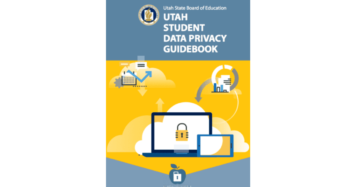Despite introducing more than 400 bills on student data privacy since 2014, states have yet to address privacy protections for school surveillance or its inequitable effects. “School Surveillance: The Consequences for Equity and Privacy,” examines this important, emerging issue, identifying the benefits and potential problems posed by school surveillance. It suggests six principles to guide state policymakers toward effective, balanced policies.
In the report, NASBE Legal Fellow J. William Tucker and Amelia Vance, NASBE’s director of education data and technology, say the desire to keep students safe is among the top reasons schools use surveillance technologies. But they warn that surveillance can be abused and cause unintended consequences. “Security measures can interfere with the trust and cooperation learning requires by creating barriers among students, teachers, and officials and casting schools in a negative light in students’ eyes,” write Tucker and Vance. As a result, students may feel less nurtured, more uncomfortable in their learning environment, and more fearful of voicing their opinions in class.





